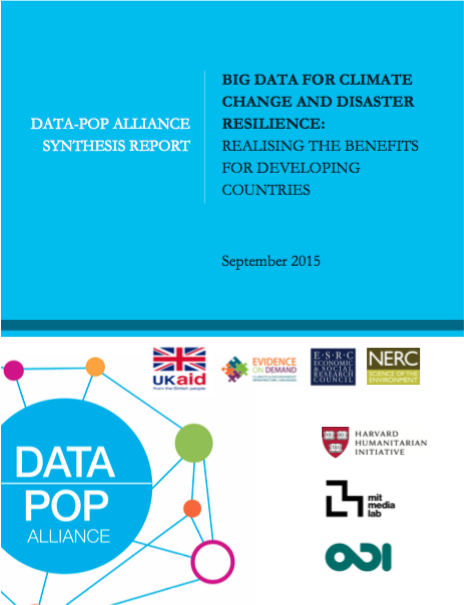This White Paper was written by a team of lead coauthors and contributors under the umbrella of Data-Pop Alliance, including Jesse Anttila-Hughes and Marc Levy as lead co-authors and Marion Dumas, Lindsey Jones, Gabriel Pestre, Yue Qiu, Emmanuel Letouzé, Simone Sala, Bessie Schwarz, Natalie Shoup, Elizabeth Tellman, and Patrick Vinck as contributors. Funding for this paper was generously provided by UK’s Department for International Development (DfID).
Data–Pop Alliance has been conducting ongoing research on Big Data, climate change and environmental resilience. We published a synthesis report that will feed into the World Humanitarian Summit to be organized in Istanbul in May 2016. Its co-lead authors are Marc Levy from the Earth Institute’s Center for International Earth Science Information Network (CIESIN) at Columbia University, and Data–Pop Alliance’s Research Affiliate Jesse Anttila-Hughes, Professor at the University of San Francisco, with contributions from many of our Research Affiliates and team members.
This paper evaluates the opportunities, challenges and required steps for leveraging the new ecosystem of Big Data to monitor and detect hazards, mitigate their effects, and assist in relief efforts as poor communities become more vulnerable to natural hazards. There have been increasing calls to make disaster risk reduction a core development concern and to build resilience so that vulnerable communities and countries as complex human ecosystems not only ‘bounce back,’ but also learn to adapt to maintain equilibrium in the face of natural hazards.

